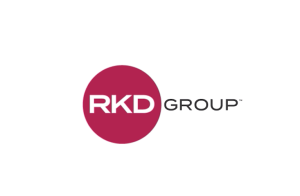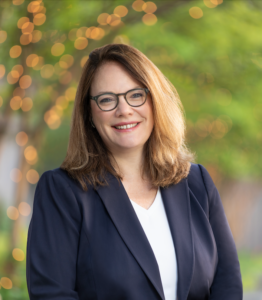Nonprofits might be in for an accounting tidal wave in 2012 as a provision in this past spring’s healthcare reform bill could exponentially increase paperwork.
All companies, including nonprofits, would be required to send a Form 1099-MISC not only to independent contractors as they have in the past, but also to vendors with which they spend at least $600 on goods and supplies during the year.
"It’s definitely going to be a lot more work," said Richard Tierney, director of finance at the North Shore Animal League America. He estimates that the Port Washington, N.Y.-based nonprofit sends approximately 100 Form 1099s each year, a number that could jump to as many as 800. The requirements will apply to payments made after Dec. 31, 2011.
Current 1099 rules require most entities, including nonprofits, to report payments totaling $600 or more in any calendar year on Form 1099-MISC to the Internal Revenue Service (IRS) and to the payees, with certain exemptions for payments to corporations and for payments of goods, materials, supplies or other merchandise.
"It’s going to hit different types of organizations in very different ways," said Mike Sorrells, national director, nonprofit tax services, at BDO Seidman in Bethesda, Md. "For the really large organizations with a lot of vendors, it just changes everything."
He suggested nonprofits obtain vendors’ Tax Identification Number (TIN) and other information as soon as they get a vendor. "You’re going to have to insist upon that information before that vendor is paid a dime — or it’s going to be a nightmare at the end of the year," said Sorrells.
Nonprofits vary so much in what they do, he said, that how they deal with the new requirements will be wildly different, from a major university to a small trade association. "It’ll all depend on what you buy," said Sorrells, suggesting that many organizations might turn to electronic filing of the 1099-MISC.
Vendor payments made by credit or purchase cards could become more common since they remain exempt from the new provision, according to Jackie Fletcher Breland, president of Columbia, S.C.-based Breland Consulting.
Sorrells suggested nonprofits advocate for a change in the law, adding that there is a movement already afoot."We hope to evaluate the issue with the help of comments from our network of state associations and, based on what we learn, determine whether regulatory action, legislative action, or both, are needed," said David Thompson, vice president of public policy at the National Council of Nonprofits (NCN) in Washington, D.C.A preliminary, "back of the envelope" estimate by NCN foresees a quadrupling of its costs for 1099 filings. NCN currently files 10 forms a year, which could increase to about 40. The $20 per form fee that its bookkeeping service charges means that NCN’s costs would leap from $400 to $2,000.
There is some question as to why nonprofits were included in the provision. "We disclose everything on the [IRS Form] 990 anyway. We don’t need the extra paperwork because we don’t pay taxes anyway [with the exception of Unrelated Business Income Taxes]. We are the most transparent sector in the economy," he said. The paper trail can be checked to determine the legitimacy of deductions and other claims on tax returns, "but the provision isn’t needed for enforcement against nonprofits É so it doesn’t much matter to the IRS how much we are paying for copier paper or postage meter rental," Thompson said.
Currently, certain exemptions generally exclude 90 percent or more of the payments made by a nonprofit in a year. But the new provision in the healthcare bill removes the exemption for payments to corporations and for payments of goods, merchandise, supplies and other property, according to Breland.
The measure also increases the penalty to the payer from $50 to $250 for each supplier that is not correctly reported per year, with the maximum penalty increased from $250,000 to $1.5 million. "These two changes are what Congress is relying upon to help fund the health care bill," she said.
The fact that the Taxpayer Advocate already flagged the requirement just months after it was enacted is "a good sign that this is one of those bright ideas that wasn’t so bright after all," Thompson said. Despite the partisan divide in Washington, "this sure does look like one of those things: a good early warning, a lot of head scratching, and the IRS already taking steps asking how to mitigate this thing," he said.
Breland suggested nonprofits start collecting Form W-9 now for all vendor payments, not just payments for services to non-corporations and consider validating vendor TINs by signing up for the IRS’ TIN Matching service (866-255-0654). To transfer the reporting burden to another entity, Breland suggested obtaining purchase cards for vendors they often purchase goods and supplies from, since the provision exempts credit or purchase cards, leaving it up to the credit card company to worry about filings.
Nonprofits that outsource their payroll might ask their providers if they handle year-end 1099 reporting, especially during the transition period, she said.
While the new requirements won’t change much in the way of accounting software, if a nonprofit has the ability to scan documents, like W-9s and 1099s, it will make their lives a lot easier, according to Steve Glauber, senior systems engineer with Serenic Software. The Lakewood, Colo.-based firm sells core financial accounting, as well as fundraising and donor management software to nonprofits. "If you have to go look for the paperwork every year, that’s a bigger problem," he said.
Nonprofits should start requesting tax identification numbers from all vendors they’ve spent more than $600 with in the past year. "Start building a procedure so you have it on file," Glauber said, emphasizing nonprofits should use the next 16 months to train staff and not wait until the end of 2011. Employees who routinely make purchases should get trained to request TINs and related documents now to get used to it. "If someone misses one now, it’s not so important," Glauber said.
"It’s a totally different way of doing business for nonprofits and it’s going to be very hard."Dave Phillips, chief financial officer for the Arlington, Va.-based Conservation Fund, anticipates the organization might triple its number of 1099s. One silver lining he pointed to was that he no longer has to figure out who gets a 1099 and who doesn’t , everyone will.
The most time consuming process will be data collection in the first year and collecting tax forms from vendors, said Phillips. That won’t be a major undertaking for a large organization like Conservation Fund, thanks to a high-end accounting software program, but he feels for small and midsized nonprofits that may end up doing it manually. NPT









